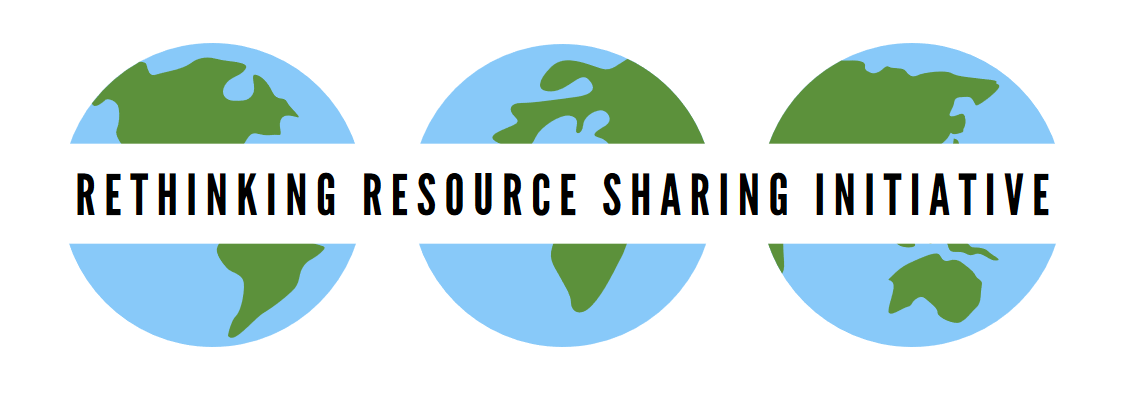A Manifesto for Rethinking Resource Sharing
Affirmed by the
- ALA/RUSA/STARS Executive Committee, January 2007
- ALA/RUSA/STARS Rethinking Resource Sharing Policies Committee, January 2007
- Rethinking Resource Sharing Steering Committee, February 2007
- IFLA Document Delivery and Resource Sharing Standing Committee, May 2007
- MAILL (Maryland Interlibrary Loan), October 2007
- DELNET-Developing Library Network (India), January 2009
- Forum for Interlending, Danish Research Library Association, September 2009
- Tenn-Share, February 2010
- National & State Libraries Australasia, April 2011
- Ontario Library Association, June 2012
If libraries want to expand and promote information accessibility, and to continue to be valued resources, we believe that libraries must improve their information delivery system. Aligning resource sharing workflow, collection policies, and discovery-delivery systems by significantly reducing service barriers and cost, and offering user service options are critical pieces that promote information access.
We believe that the user should be able to get what s/he wants on the terms that s/he chooses without undue hurdles from the library community. As libraries are making their collections visible on a global scale, so should they provide an international resource delivery system or a service model that combines the strengths of all participating libraries. Toward that end, we believe the following principles embraced by libraries and librarians will encourage the sort of resource sharing and delivery that will enhance the role of libraries in the expanding information environment while maintaining the integrity of the institution’s mandate and collections:
- Restrictions shall only be imposed as necessary by individual institutions with the goal that the lowest-possible-barriers-to-fulfillment are presented to the user.
- Library users shall be given appropriate options for delivery format, method of delivery, and fulfillment type, including loan, copy, digital copy, and purchase.
- Global access to sharable resources shall be encouraged through formal and informal networking agreements with the goal towards lowest-barrier-to-fulfillment.
- Sharable resources shall include those held in cultural institutions of all sorts: libraries, archives, museums, and the expertise of those employed in such places.
- Reference services are a vital component to resource sharing and delivery and shall be made readily accessible from any initial “can’t supply this” response. No material that is findable should be totally unattainable.
- Libraries should offer service at a fair price rather than refuse but should strive to achieve services that are not more expensive than commercial services, e.g. bookshops.
- Library registration should be as easy as signing up for commercial web based services. Everyone can be a library user.
Each of these general principles is being implemented today to various degrees by various institutions in concrete ways, from floating stock to digitization on demand, from revised circulation policies to fee-for-personalized-service, from unmediated request to unmediated delivery.
Recent studies underline the experiences of our users with personalized convenient service (including options on cost, time, and packaging) and the general disconnect of that experience with the library resource discovery and delivery mechanisms. While many users find Internet searching results good enough, the desire for high quality collections invariably lead them to libraries. To deliver that information requires that libraries meet some of the service expectations that users experience with Internet book sellers, which means easy registration, providing free or fee-based home delivery services, and providing the best value.
Because libraries want to remain a center for providing the best information, we believe every institution must re-evaluate its service model in light of the above seven principles, revise its policies and workflow to meet the global resource sharing and delivery mandate, and expose its resources to more general discovery.
Respectfully Submitted by members of the Rethinking Resource Sharing Initiative – Policy and Cultural Issues Group:
Robert Daugherty, Circulation Librarian, University of Illinois at Chicago
Janifer Gatenby, New Business Development Manager, OCLC Pica
Eric Hansen, Director of Statewide Resource Sharing, Kansas State Library
Jennifer Kuehn, Head, Interlibrary Services, Ohio State University Libraries
Pat Libera, Interlibrary Loan Supervisor, Weld Library District, Greeley, CO
Carrol Lunau, Library and Archives Canada
Cyril Oberlander, Director of Interlibrary Services, University of Virginia, Alderman Library
Becky Ringwelski, Associate Director, MINITEX
Candy Zemon, Senior Product Strategist, Polaris Library Systems
